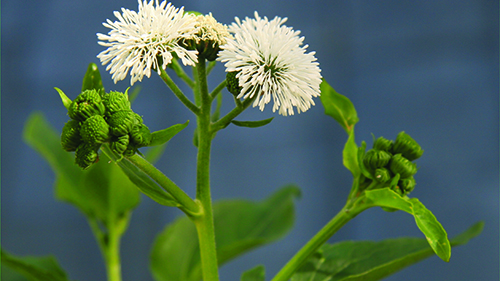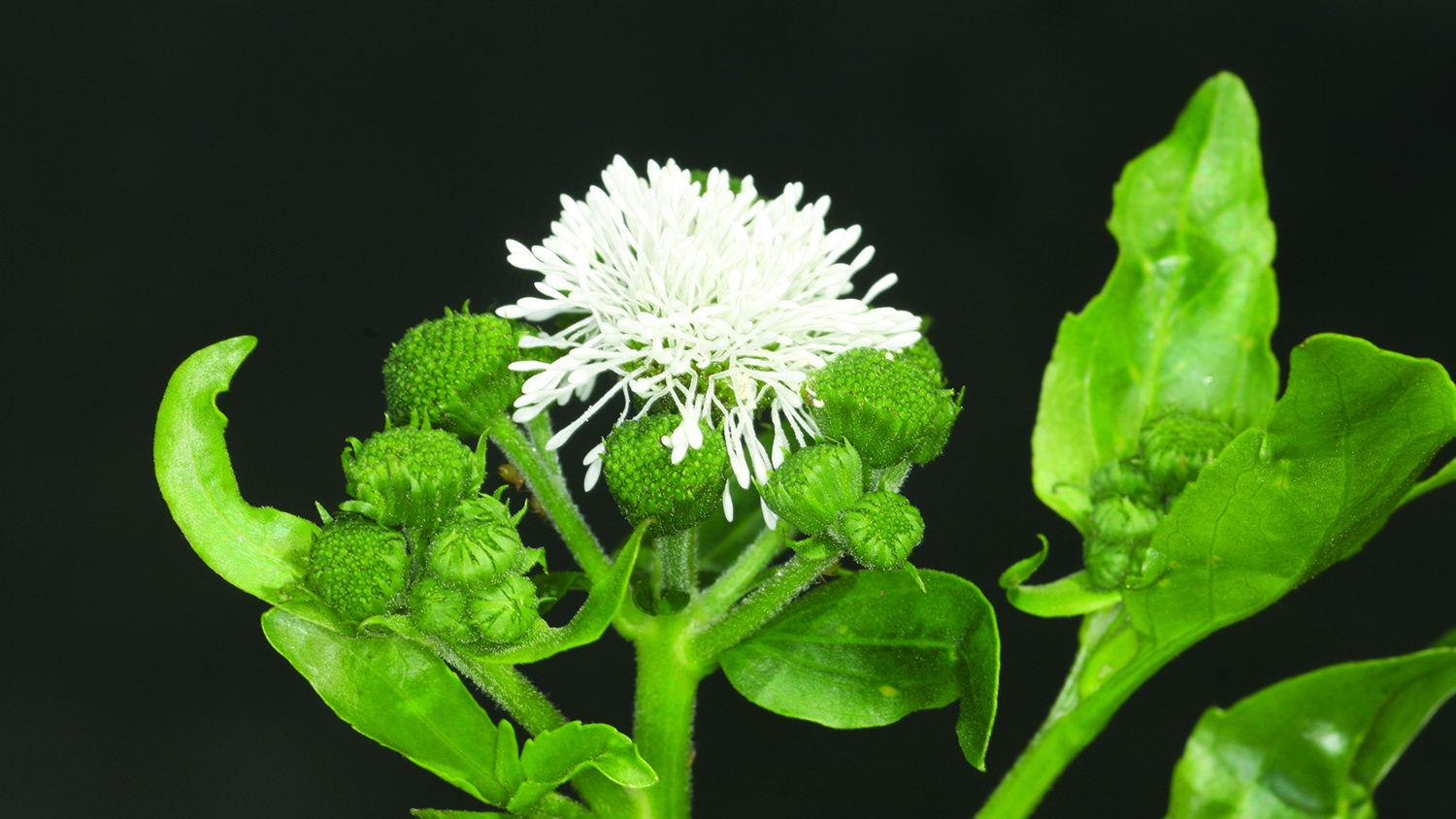| Management programme |
| Eradication |
| Objectives |
| Reduce the level of infestation of Senegal tea within the Waikato region to zero density to prevent adverse effects and impact. |
| Impacts |
| Biodiversity, water quality/quantity, social and cultural wellbeing, amenity/recreation |
Senegal tea, native to central and southern America (Mexico to Argentina), was originally bought to New Zealand as an ornamental plant for ponds and aquariums. It is an extremely aggressive weed of wet marshy soils and freshwater that inhabits wetlands and still or flowing waters.

Senegal tea is a hardy perennial semi-aquatic - aquatic herb (to 1.5m tall) that is dormant over winter (dying back to its roots when chilled) but grows rapidly in spring and summer.
Flower
- Numerous clover-like flowerheads of thin white florets that are highly scented.
- Flowers are present in summer (mainly November to April).
Fruit/seeds
- Numerous yellow-brown seeds (5mm).
Leaves/stems
- Leaves are dark green and slightly waxy (2cm-20cm long), lance shaped with serrated slightly wavy edges.
- Leaves on short stalks grow in opposite pairs along the stems.
- Stems are erect at first, becoming prostrate and branching, with roots at the nodes.
- Stems are hollow when mature.
Why is it a pest?
Senegal tea grows in damp soils, usually along the edges of waterways, but can survive and grow when completely inundated. It forms rounded bushes (to 1.5m tall) and scrambling mats of tangled stems that can float out over waterbodies. The floating mats rapidly cover waterways or wetland areas, displacing and outcompeting native plants. Heavy infestations and the rotting of dead plants can diminish the oxygen available to fish and other aquatic organisms. It can affect both the health of wetland ecosystems and native biodiversity.
By changing habitats and smothering other desirable species, Senegal tea may displace traditional food sources of value to Māori. It may hamper water flow, block streams and cause flooding. Senegal tea can also interfere with recreational activities such as fishing or boating.
Senegal tea can spread by seed, or vegetatively via stem fragments which readily form new roots and grow into new plants. Seed can be dispersed by water movement and in soil attached to vehicles, machinery or animals. Stem fragments can also be dispersed by water movement, as well as via planting, clearing and dumping of pond vegetation or by drainage machinery.
Control methods
Waikato Regional Council is responsible for controlling Senegal tea and it is illegal for anyone else to remove or disturb it.
If you see Senegal tea on your property, do not cut, treat or try to remove it. Call 0800 800 401 to report it to your local biosecurity pest plant officer.
You can help prevent Senegal tea from spreading
Senegal tea can spread by water movement (like floods or tides), soil movement, and by equipment such as diggers, farm machinery, eel nets and boats. When disturbed, Senegal tea plants break up easily into small fragments which can readily regrow. Take special care not to disturb it or transport it to new sites.
- Check boats, trailers, vehicles and equipment for fragments before heading home.
- Check drains on your property regularly.
Farmers should protect their properties from Senegal tea and other serious pest plants:
- Insist all contractors practice good weed hygiene and clean their equipment before entering the farm
- Make sure supplementary feed brought onto the farm is weed free
- Make sure any aggregates, soil or sand brought onto the farm is weed free.






To ask for help or report a problem, contact us
Tell us how we can improve the information on this page. (optional)